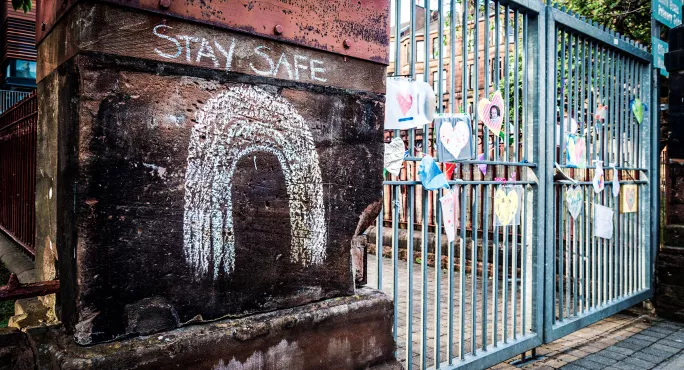During the pandemic, school closures ranged from almost no closure at all for a handful of countries, such as Sweden, to a total between 10 and 30 weeks for most countries reporting solid school data.
World Bank and Unesco analysis shows many countries with learning loss proportional to the duration of school closures - and around the globe, schools for 168 million young people closed for almost a full year.
Indeed, for Brazil, Norway and Poland, the learning losses are almost equivalent to a full school year.
But the topline figures do not tell the whole story: the full picture is one of significant variation in impact - mathematical attainment is particularly hard-hit, and there has been a tendency for young people from lower socioeconomic backgrounds to be most affected.
Even in single nations, the effects are highly distributed and with uneven impact.
Uneven voids in learning
All this does not mean we had “a normal interruption of normal school activities”. We did not stop to now resume as if nothing more than a “short vacation from schooling” had happened.
During remote learning, a few students progressed normally, other students halted their progress and most students progressed but with many voids, gaps and flaws in their knowledge and skill, and in their learning identity and “school connectedness”.
Even more serious is the fact that these voids are not uniform: where some students may have progressed, others did not. Unfortunately, education agents - such as boards of education and ministries - may not have a full understanding of these deficiencies.
Instead of facing this reality, some tend to close their eyes and deny the facts. The rhetoric of “back to normal” is strong.
The denials of learning loss came early. Prominent voices doubted the existence of learning loss. The children are resilient, they will recover, they won’t forget what they have learned, and they will catch up.
But, if absence from schooling has no negative consequences, then why go to school at all?
What can we do now? Three ways to take action
First, we must understand the situation in each school, each class and each student. We need assessment tools at all levels.
This has already happened in countries in which exams and other forms of assessment happen regularly.
But countries and systems that have shunned serious evaluations have no other way to face the reality and act. Only through assessment can the distribution and scale of learning loss be understood and action taken.
Second, this needs increased attention to the curriculum learning goals. There cannot be serious assessment if goals are not clear.
Assessment is always done against criteria and standards; sometimes implicit, but better when they are explicit, and public. Wherever curricular goals are loosely defined, recovery is more challenging.
Third, we need to understand that the effects of Covid are highly individual; they are widely and unpredictably distributed - extreme in some, mild in others.
The best policy action is targeted, focussed on those adversely affected, and matching actions to specific needs. Tutoring, special classes and increased schooling all need to be considered, even in the context of global financial pressures.
While we need to focus on how each young person has been affected, some approaches to differentiation can increase inequity if they lead to lowered or heavily personalised learning standards.
Ambitious and well-defined curricular goals are for all, and assessment using these can correct misalignments and inequalities, resulting not only in support to individual young people but to collective improvement.
What part of all this provides the biggest challenge for public policy? The most affected are likely to be less visible to services, and without voice.
Our schools must attend to these highly vulnerable young people.
Nuno Crato is a university researcher, applied mathematician, economist and writer. From 2011 to 2015 he was appointed as Portugal’s minister of education, higher education and science.
Harry Patrinos is an adviser at the Office of the Chief Economist for Europe and Central Asia at the World Bank.
Tim Oates is group director for assessment research and development at Cambridge University Press & Assessment





